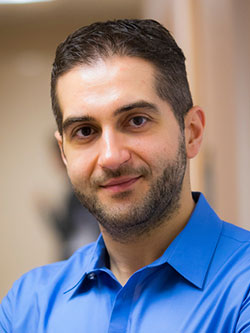Kostas Bekris
Rutgers University
Seminar Information

The aspiration of modern robotics is to achieve a level of adaptability, robustness and safety that will allow the wide deployment of robots in unstructured domains and everyday human spaces. This requires progress at multiple components of robotics, from mechanisms, to sensing as well as decision-making and reasoning. This talk starts from robot planning algorithms, which achieve asymptotic optimality for systems with significant dynamics. It shows that these methods can be integrated with machine learning models and used for controlling new, soft robotic mechanisms that have been developed either for safe, effective grasping and manipulation, such as soft adaptive hands, or locomotion over uneven terrains, such as tensegrity robots. The talk will then proceed to describe perception methods, which can identify and robustly track objects without the need for cumbersome human annotation, and which allow the effective application of planning and control methods for adaptive manipulation, such as robotic packing and tight insertion for assembly. The talk will conclude with a brief discussion on how this progress empowers the next step in the field involving the development of robots that are socially cognizant and can be safely and effectively integrated into our society.
Kostas Bekris is an Associate Professor of Computer Science at Rutgers University in New Jersey. He is working in algorithmic robotics, where his group is developing algorithms for robot planning, learning and perception especially in the context of robot manipulation and multi-robot problems. Applications include logistics and manufacturing with a focus on taking advantage of novel soft, adaptive mechanisms. His research has been supported by NSF, DHS, DOD and NASA, including a NASA Early Career Faculty award. He received his Ph.D in Computer Science from Rice University in 2008 under the guidance of Prof. Lydia Kavraki.
